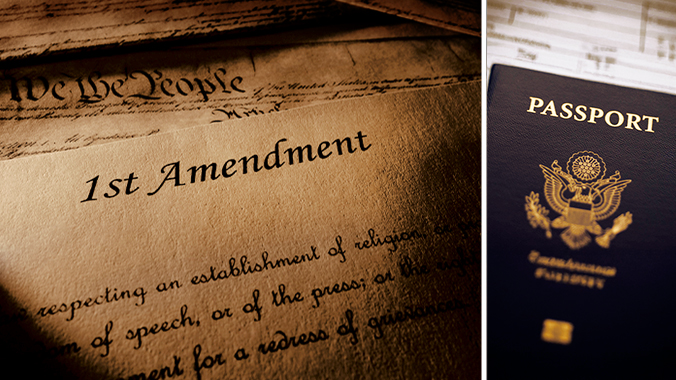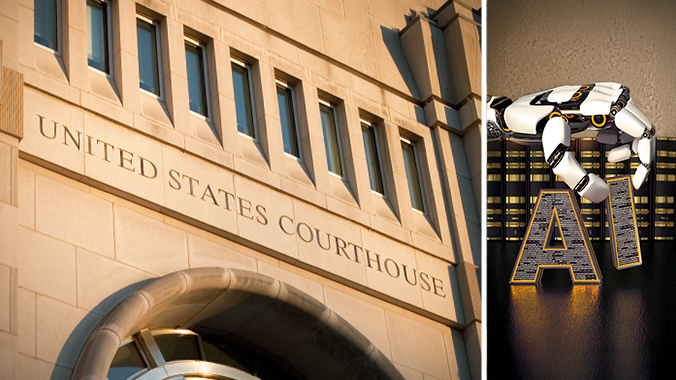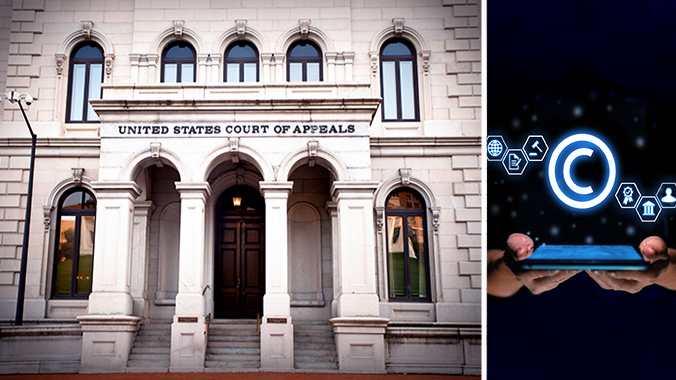Navigating Receiverships ABCs and Bankruptcy: A Comparative Analysis for Lenders and Creditors

Jaime Leggett practices in the areas of bankruptcy and complex commercial litigation. His experience includes investigating and prosecuting director and officer liability claims; representing trustees, creditors, equity holders, and debtors in bankruptcy proceedings along with assignees, creditors, and assignors in assignment for the benefit of creditors proceedings; federal and state court commercial litigation; and trials in federal, bankruptcy, and state courts nationwide.
On-Demand: April 25, 2025
2 hour CLE
Tuition: $195.00
Co-Sponsored by myLawCLE
Get this course, plus over 1,000+ of live webinars.
Learn More
Training 5 or more people?
Sign-up for a law firm subscription plan and each attorney in the firm receives free access to all CLE Programs
Program Summary
Navigating financial distress requires a deep understanding of the legal tools available to businesses, creditors, and investors. This comprehensive program explores the statutory foundations, strategic advantages, and practical applications of receiverships and assignments for the benefit of creditors (ABCs) as alternatives to bankruptcy. Participants will gain insights into the powers and responsibilities of receivers and assignees, the comparative benefits of each process, and key factors influencing decision-making. Through real-world case studies, this course will highlight how these mechanisms can be leveraged to maximize asset recovery while minimizing costs and court involvement. The program will also address the interests of key stakeholders, including creditors, debtors, and investors—and provide guidance on managing competing claims, resolving conflicts, and maintaining effective communication throughout the process.
This course is co-sponsored with myLawCLE.
Key topics to be discussed:
- Understand the legal framework of receiverships
- Understand the legal framework of ABCs
- Receiverships/ABCs and third-party stakeholders: Navigating creditor, debtor, and investor interests
![]() Closed-captioning available
Closed-captioning available
Speakers
 Jaime B. Leggett | Bast Amron
Jaime B. Leggett | Bast Amron
Jaime Leggett practices in the areas of bankruptcy and complex commercial litigation. His experience includes investigating and prosecuting director and officer liability claims; representing trustees, creditors, equity holders, and debtors in bankruptcy proceedings along with assignees, creditors, and assignors in assignment for the benefit of creditors proceedings; federal and state court commercial litigation; and trials in federal, bankruptcy, and state courts nationwide.
Prior to joining the firm, Jaime worked for a firm in New York City, handling complex commercial and bankruptcy litigation. Previously to that firm, Jaime served as a law clerk to U.S. Bankruptcy Judge Allan Gropper of the Bankruptcy Court for the Southern District of New York and U.S. Bankruptcy Judge Arthur Weissbrodt of the Bankruptcy Court for the Northern District of California.
Agenda
I. Understanding the legal framework of receiverships | 1:00pm – 2:00pm
- Explore the statutory basis for state court receiverships and the growing adoption of model receivership statutes
- Learn about the legal powers and duties of a receiver in managing distressed businesses
- Examine strategic advantages of receiverships
- Discuss how receiverships provide protections similar to bankruptcy while offering additional benefits, such as lower costs and greater control for secured lenders
- Analyze the ability of lenders to initiate receiverships without business owner consent and the strategic timing of such actions
- Compare receiverships and ABCs/bankruptcy
- Compare the cost implications, control dynamics, and operational outcomes of receiverships versus bankruptcy or assignment for the benefit of creditor (“ABC”) proceedings
- How receiverships can facilitate asset sales free and clear of lines, akin to bankruptcy sales
- Case studies and practical applications
- Real-world case studies where receiverships have been successfully implemented as an alternative to bankruptcy
Break | 2:00pm – 2:10pm
II. Understanding the legal framework of ABCs | 2:10pm – 2:40pm
- Explore the statutory basis for state court ABCs and their common use in certain jurisdictions
- Learn about the legal powers and duties of an assignee in collecting and liquidating the assignment estate
- Examine strategic advantages of ABCs
- Discuss how ABCs are similar to a Chapter 7 bankruptcy liquidation while offering additional benefits, such as lower costs and the ability to select the assignee
- Compare ABCs and bankruptcy/receiverships
- Discuss how federal tax claims may render an ABC impractical given the ability of the IRS to short circuit the ABC process
- Discuss how ABCs can facilitate a sale
- Discuss how ABCs typically require less judicial involvement than a receivership or bankruptcy and can be more flexible
- Case studies and practical applications
- Real-world case studies where ABCs have been successfully implemented as an alternative to bankruptcy
- Discuss best practices for advising clients on whether to pursue a receivership, ABC, or bankruptcy
III. Receiverships/ABCs and third-party stakeholders: navigating creditor, debtor, and investor interests | 2:40pm – 3:10pm
- Understanding stakeholder roles: Explore the roles and rights of various stakeholders, including creditors, debtors, and investors, in a receivership/ABC process
- Managing conflicts and prioritizing claims: Discuss strategies for managing conflicts and prioritizing competing claims to maximize asset recovery
- Communication best practices: Learn effective communication strategies for keeping stakeholders informed and aligned during the receivership/ABC process
Credits
Alaska
Approved for CLE Credits
2 General
Alabama
Approved for Self-Study Credits
2 General
Arkansas
Approved for CLE Credits
2 General
Arizona
Approved for CLE Credits
2 General
California
Approved for CLE Credits
2 General
Colorado
Pending CLE Approval
2 General
Connecticut
Approved for CLE Credits
2 General
District of Columbia
No MCLE Required
2 CLE Hour(s)
Delaware
Pending CLE Approval
2 General
Florida
Approved for CLE Credits
2.5 General
Georgia
Approved for CLE Credits
2 General
Hawaii
Approved for CLE Credits
2.4 General
Iowa
Pending CLE Approval
2 General
Idaho
Pending CLE Approval
2 General
Illinois
Approved for Self-Study Credits
2 General
Indiana
Approved For On-Demand Credits
2 General
Kansas
Pending CLE Approval
2 Substantive
Kentucky
Pending CLE Approval
2 General
Louisiana
Pending CLE Approval
2 General
Massachusetts
No MCLE Required
2 CLE Hour(s)
Maryland
No MCLE Required
2 CLE Hour(s)
Maine
Pending CLE Approval
2 General
Michigan
No MCLE Required
2 CLE Hour(s)
Minnesota
Approved for Self-Study Credits
2 General
Missouri
Approved for Self-Study Credits
2.4 General
Mississippi
Pending CLE Approval
2 General
Montana
Pending CLE Approval
2 General
North Carolina
Pending CLE Approval
2 General
North Dakota
Approved for CLE Credits
2 General
Nebraska
Pending CLE Approval
2 General
New Hampshire
Approved for CLE Credits
120 General minutes
New Jersey
Approved for CLE Credits
2.4 General
New Mexico
Approved for Self-Study Credits
2 General
Nevada
Approved for Self-Study Credits
2 General
New York
Approved for CLE Credits
2.4 General
Ohio
Approved for Self-Study Credits
2 General
Oklahoma
Pending CLE Approval
2.5 General
Oregon
Approved for Self-Study Credits
2 General
Pennsylvania
Approved for Self-Study Credits
2 General
Rhode Island
Pending CLE Approval
2.5 General
South Carolina
Pending CLE Approval
2 General
South Dakota
No MCLE Required
2 CLE Hour(s)
Tennessee
Approved for Self-Study Credits
2 General
Texas
Approved for CLE Credits
2 General
Utah
Pending CLE Approval
2 General
Virginia
Not Eligible
2 General Hours
Vermont
Approved for CLE Credits
2 General
Washington
Approved via Attorney Submission
2 Law & Legal Hours
Wisconsin
Approved for Self-Study Credits
2 General
West Virginia
Pending CLE Approval
2.4 General
Wyoming
Pending CLE Approval
2 General
Preview
More CLE Webinars
Trending CLE Webinars








Upcoming CLE Webinars































































